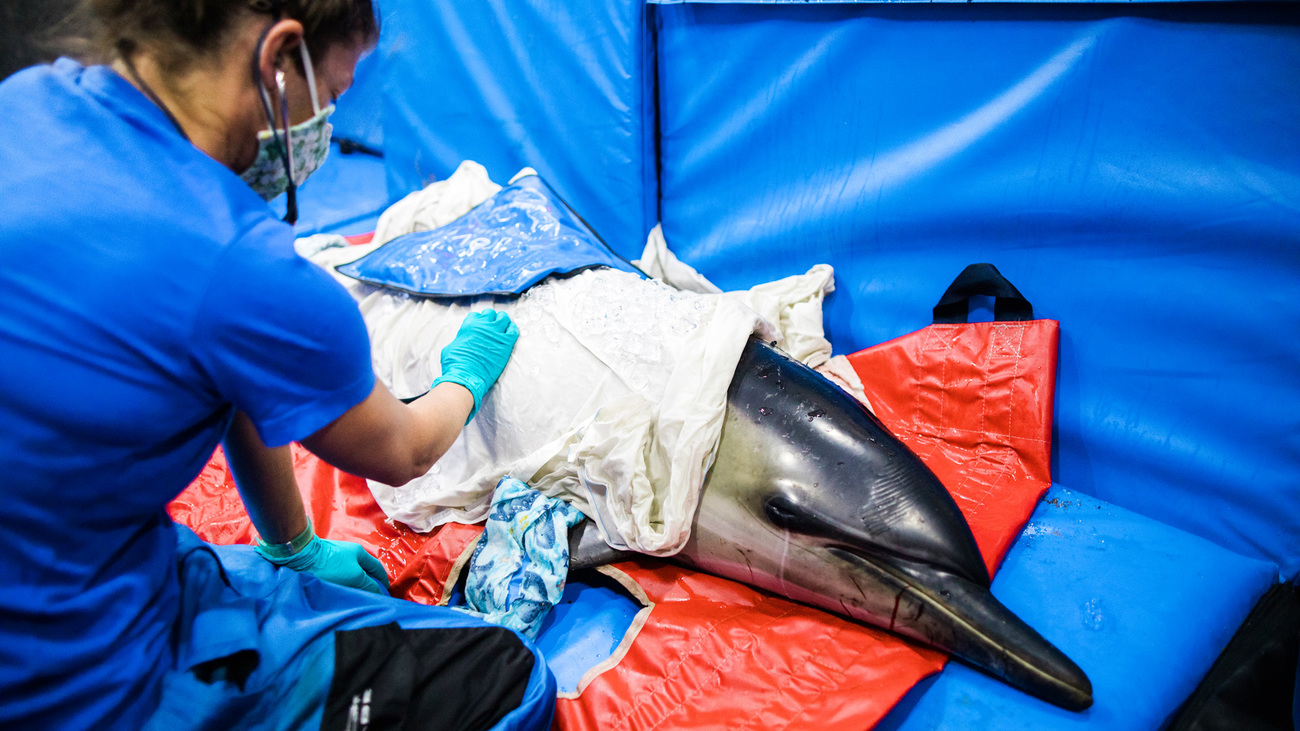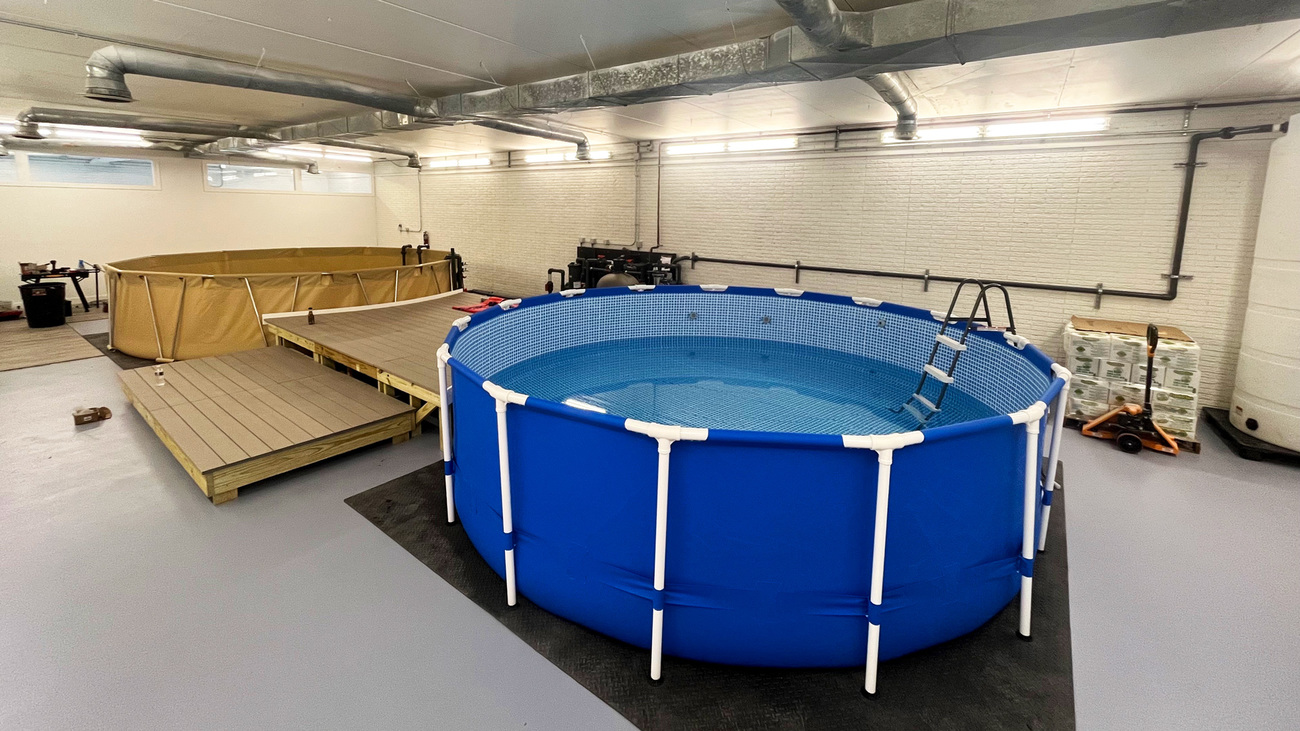New rescue center is a lifeline for dolphins on Cape Cod
New rescue center is a lifeline for dolphins on Cape Cod

Cape Cod sees more instances of live mass dolphin strandings than anywhere else in the world. As the director of IFAW’s marine mammal rescue team, I am thrilled to announce the opening of IFAW’s new Dolphin Rescue Center—the first of its kind as a short-term rehabilitation option to give these dolphins another chance at life.
For 25 years, our Cape Cod-based team has been working tirelessly to rescue, treat, and release marine mammals back into the ocean. But to have the greatest chance at survival, weaker animals often require additional diagnostics, treatment, and sometimes additional recovery time that can only be provided at a dedicated facility.
The Dolphin Rescue Center marks an important milestone in our mission to protect and conserve marine life, and I couldn’t be prouder of our dedicated team and supporters who are making this accomplishment possible. I’d also like to personally thank the Dutch Postcode Lottery for their generous contribution in the realization of this project.
Compassion and expertise
The Dolphin Rescue Center isn’t just a facility; it’s a hub of compassion and expertise. Our staff, including marine biologists, veterinarians, and animal care specialists, will work around the clock to provide the highest level of care to our marine friends. From emergency medical treatment to rehabilitation and release, every aspect of a dolphin’s journey to recovery will be meticulously managed.
Cutting-edge facilities
The Center boasts cutting-edge facilities designed with the dolphins’ well-being in mind. Two saltwater rehabilitation pools and their filtration systems allow dolphin patients to regain their strength and mobility. The custom-built facilities enable us to conduct thorough examinations and provide care and medical treatment as needed. Our focus isn’t just on rescue; it’s on nurturing and healing these magnificent creatures until they’re ready to return to the open waters.
This innovative pilot project seeks to improve post-release survival for live stranded small cetaceans (dolphins and porpoises) suffering from acute conditions by providing short-term intensive care. The project will evaluate how feasible and useful this short-term rehabilitation is and inform decisions about treatment of stranded dolphins around the globe.

Community involvement and education
Our mission extends beyond the confines of the rescue center. We’re committed to fostering a strong connection between the community and marine life. At the front of the facility will be a 300-foot educational display, showcasing photos, equipment, and a live camera recording the activities inside the facility. Additional training and outreach programs will offer visitors a chance to learn about marine conservation, the challenges dolphins face, and what they can do to make a difference. By raising awareness and inspiring the next generation of ocean advocates, we’re building a better future for dolphins and their environment.
The road ahead
As we stand on the cusp of the Dolphin Rescue Center’s opening, I’m filled with a mix of emotions—excitement, anticipation, and a profound sense of responsibility. We recognize the challenges ahead are as vast as the oceans we seek to protect, but we feel encouraged by the progress IFAW’s pioneering techniques have contributed to increase survival rates of stranded marine mammals.
In the 1990s, only 1 in 10 rescued dolphins were able to be successfully released. Today that number is 7 in 10 thanks to IFAW scientists who have challenged the norm and determined that single-strand dolphins are capable of reintegrating into a pod. The chance to evaluate the rehabilitation process as a critical piece of the journey that informs life after release will allow IFAW and our broader global networks to make decisions and develop best practices that contribute to healthier animals and healthier oceans.
The more we learn about the individual animal and the challenges they face, the better positioned we are to protect the species. Together, with the support of our global community, we will continue to push the boundaries of what’s possible for marine conservation.
Related content
Our work can’t get done without you. Please give what you can to help animals thrive.